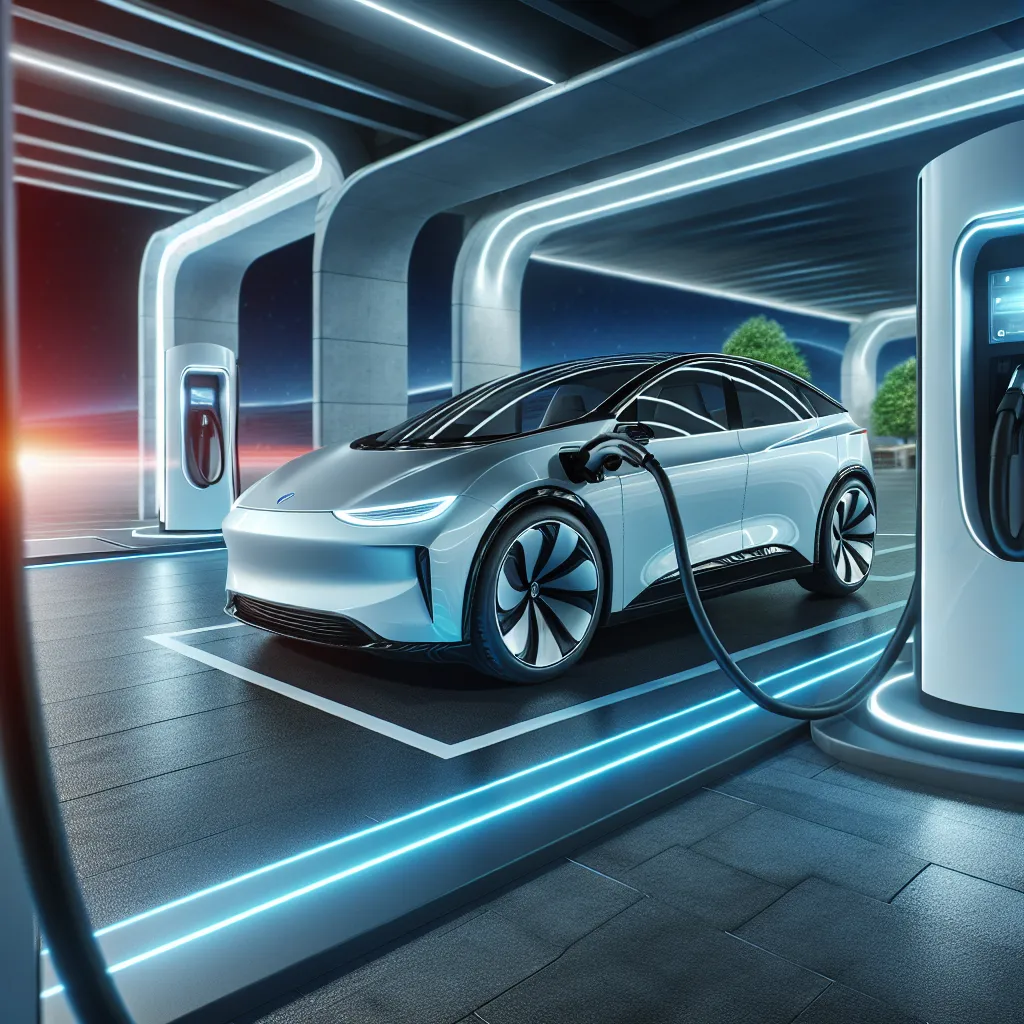Revolutionizing the Automotive Industry: The Rise of Electric Vehicles
Electric vehicles (EVs) are revolutionizing the automotive industry, leading the way toward a greener and more sustainable future. The rise of electric vehicles marks a significant shift in the automotive landscape, with major manufacturers investing heavily in EV technology and infrastructure. This shift is driven by the increasing awareness of environmental issues and the need to reduce reliance on fossil fuels. As a result, the automotive industry is experiencing a transformative period that is reshaping the way we think about transportation.
One of the key aspects of the rise of electric vehicles is their impact on reducing greenhouse gas emissions. By eliminating tailpipe emissions and relying on electricity as a power source, EVs help combat air pollution and reduce overall carbon footprint. This shift towards cleaner energy has the potential to revolutionize not only the automotive industry but also the energy sector as a whole.
Furthermore, electric vehicles are reshaping consumer behavior and preferences, driving the demand for sustainable and technologically advanced transportation options. With advancements in battery technology and the expansion of charging infrastructure, EVs are becoming more accessible and practical for a wider audience. This accessibility is driving increased adoption of electric vehicles and challenging traditional notions of automotive design and performance.
As electric vehicles continue to gain momentum, they are disrupting the automotive industry in profound ways. From influencing supply chains and manufacturing processes to redefining the concept of mobility, EVs are at the forefront of automotive innovation. With ongoing research and development, as well as government initiatives to support sustainable transportation, electric vehicles are poised to reshape the automotive industry for years to come.
Overcoming Challenges: The Journey towards Mainstream Adoption of Electric Vehicles
Electric vehicles have emerged as a promising solution to reducing carbon emissions and combating climate change. However, the journey towards mainstream adoption of electric vehicles is not without its challenges.
One of the primary obstacles to widespread adoption of electric vehicles is the issue of range anxiety. While traditional internal combustion engine vehicles can be refueled in a matter of minutes, electric vehicles often require significantly more time to recharge. This inconvenience has led to concerns about the practicality of electric vehicles for long-distance travel.
Another significant challenge is the limited availability of charging infrastructure. While major cities may boast a growing network of charging stations, rural areas and less developed regions often lack the necessary infrastructure to support widespread adoption of electric vehicles.
Additionally, the high upfront cost of electric vehicles remains a barrier for many consumers. Although advancements in technology have led to a gradual decrease in the cost of electric vehicle batteries, the initial purchase price of electric cars continues to be a deterrent for a significant portion of the population.
To overcome these challenges, industry stakeholders, policymakers, and technology innovators must collaborate to develop solutions that address the concerns surrounding electric vehicles. This includes investments in expanding charging infrastructure, technological advancements to increase the range and efficiency of electric vehicles, and financial incentives to offset the initial cost for consumers.
As these challenges are addressed and innovative solutions are implemented, electric vehicles are positioned to play a central role in the future of automotive transportation, offering a sustainable and environmentally friendly alternative to traditional gasoline-powered vehicles.
Sustainability and Efficiency: The Environmental Benefits of Electric Vehicles
Electric vehicles (EVs) are revolutionizing the automotive industry, offering a promising solution to address sustainability and efficiency concerns. One of the key environmental benefits of electric vehicles is their contribution to reducing air pollution and greenhouse gas emissions. Unlike traditional internal combustion engine vehicles, EVs produce zero tailpipe emissions, thereby improving air quality and mitigating the negative impacts of transportation on climate change.
Moreover, the sustainability aspect of electric vehicles extends to their energy source. With the increasing integration of renewable energy sources into the power grid, EVs can be charged using clean energy, further reducing their overall environmental footprint. This shift towards cleaner energy for transportation aligns with global efforts to transition towards a low-carbon economy and combat the challenges of pollution and resource depletion.
Furthermore, the efficiency of electric vehicles in utilizing energy underscores their environmental advantages. Electric motors are significantly more energy-efficient than internal combustion engines, leading to lower energy consumption per mile traveled. This not only reduces the reliance on finite fossil fuels but also minimizes energy wastage, contributing to a more sustainable and resource-efficient mode of transportation.
In conclusion, electric vehicles offer a compelling case for the future of automotive innovation by providing tangible environmental benefits in terms of reduced emissions, reliance on clean energy, and overall energy efficiency. As the global community prioritizes sustainability and seeks environmentally responsible transportation solutions, the rise of electric vehicles represents a pivotal step towards a cleaner and more sustainable automotive landscape.

